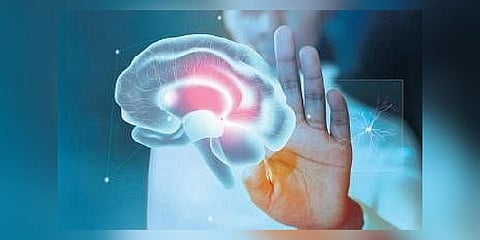

HYDERABAD: Among many neurological disorders, Alzheimer’s disease is one of the rapidly growing cases in India like many other countries. In light of this, a research study presented at the 2023 Annual Meeting of The Menopause Society in Philadelphia revealed that hot flashes and night sweats may be linked with Alzheimer’s disease.
Getting into the history of Alzheimer’s disease, we find that it is a common form of dementia affecting individuals over 65 years of age, causing memory loss and difficulty in daily activities. The research says that it is linked to postmenopausal symptoms like hot flashes and night sweats. The difference between normal sweating and sweating due to this disease is based on the age group and population. In India, menopause occurs five to ten years earlier than in the Western population, causing severe hot flashes lasting one to two years. These symptoms can cause sleep disturbances.
The reason behind these symptoms lies in the hormonal changes. Also, oestrogen plays a crucial role in maintaining bone density, fertility, and overall well-being in women of reproductive age. The loss of oestrogen support during menopause triggers hot flashes and night sweats.
Additionally, the lack of hormonal support can contribute to mental health issues, including depression and anxiety. Managing these symptoms, especially when they are debilitating, may involve hormone replacement therapy, which is popular in postmenopausal women in Western countries and India, improving cognition and brain tissue. However, it can increase blood clot formation in blood vessels, including the brain and heart.
To address this growing concern, it is crucial to understand risk factors associated with the disease. Three key factors play a vital role in Alzheimer’s prevention: education, atherosclerotic risk factors (hypertension and cholesterol levels), and glycemic control. Education acts as a modifiable factor, emphasising the importance of cognitive stimulation and lifelong learning in reducing Alzheimer’s risk. Managing atherosclerotic risk factors, such as hypertension and cholesterol, also contributes to prevention.
Additionally, maintaining stable blood sugar levels is crucial. These factors are critical for both men and women and are central to Alzheimer’s prevention efforts. While there is no definitive high-quality evidence regarding diet’s role in Alzheimer’s prevention, a consensus suggests that a Mediterranean-style diet may be beneficial. This diet emphasises green leafy vegetables, dry fruits like almonds, and a focus on whole, unprocessed foods. “Lifestyle modifications like regular exercise, regular dietary habits, and mental activities like memory games and crosswords can help reduce the risk of dementia in women. Consuming vegetables, salads, and fruits with less salt intake can also be beneficial,” informs Dr Shyam K Jaiswal, Consultant Neurologist, Care Hospitals.
According to Dr Mohan Krishna Narasimha Kumar, Consultant Neurologist, Yashoda Hospital, the research study presented at the 2023 Annual Meeting of The Menopause Society in Philadelphia is not very alarming.
“We need to remember that it only shows that some women might develop dementia down the line with these symptoms. What happens is, once you come to know that you are at risk of dementia, you panic a lot. These head markers only give an indication that two decades down the line, you are at risk. ‘At risk’ does not mean having the disease. That should be kept in mind,” concludes Dr Mohan.